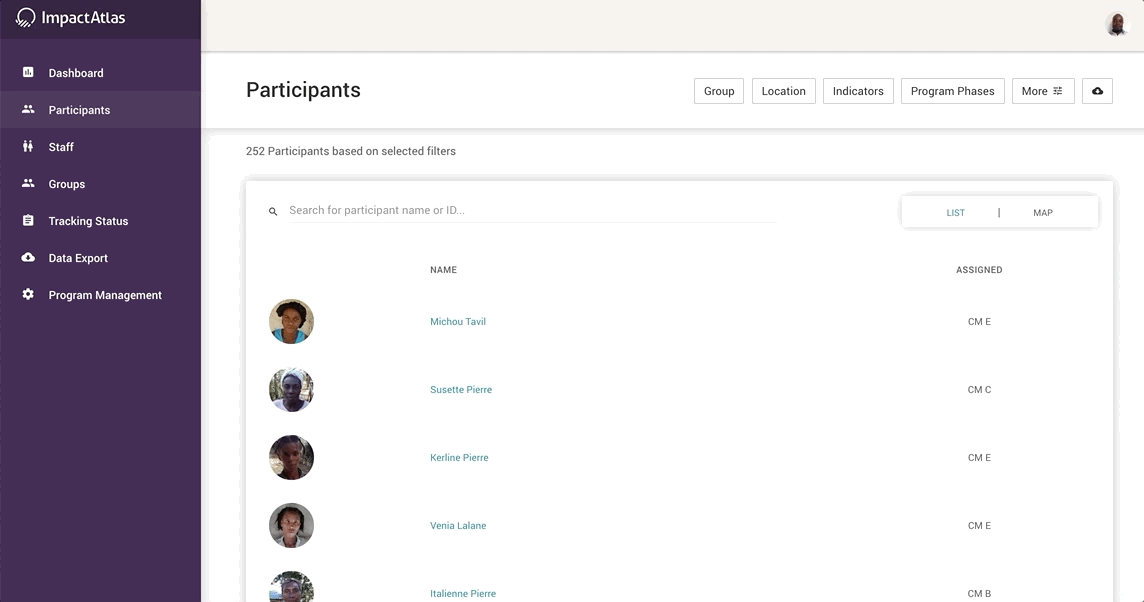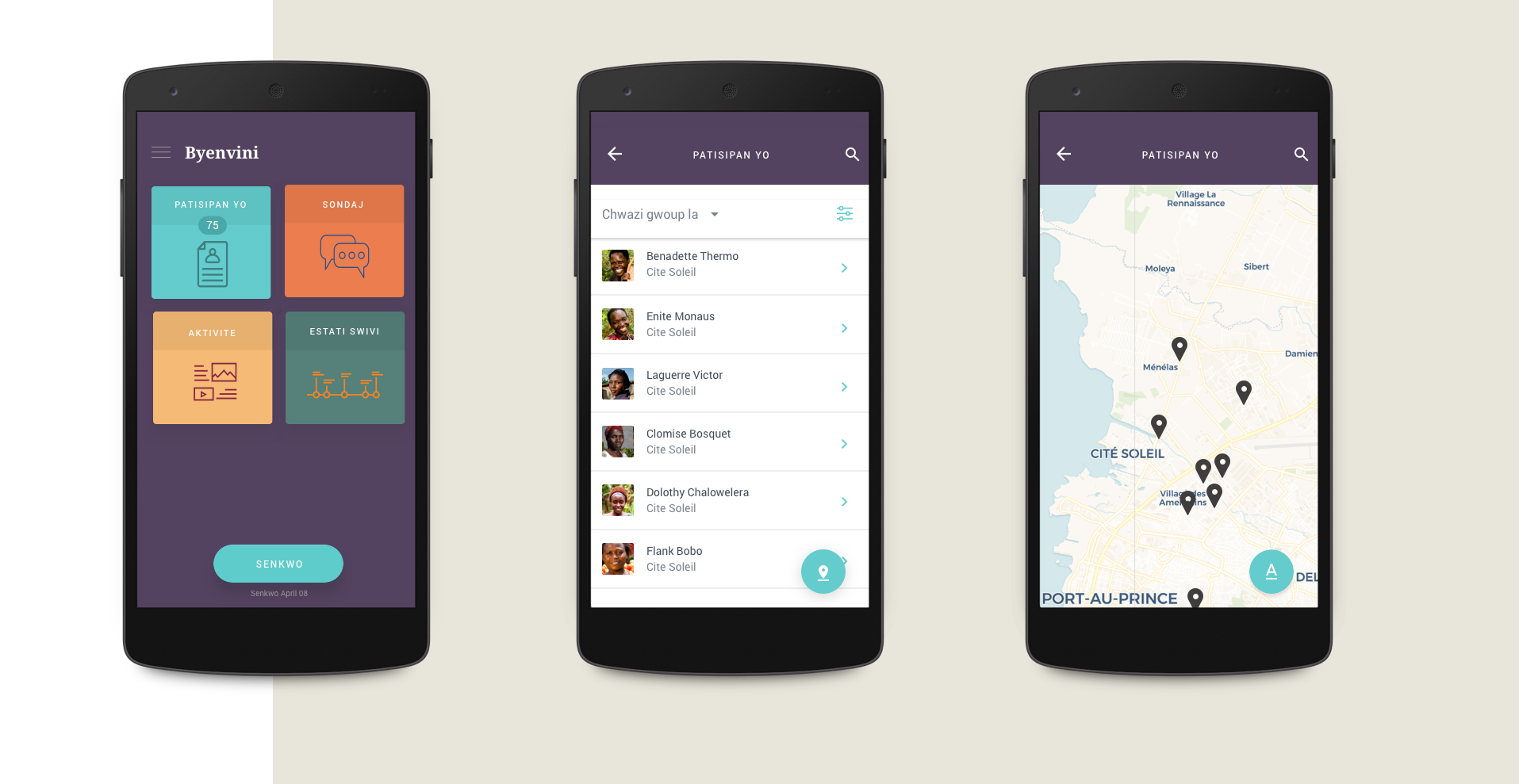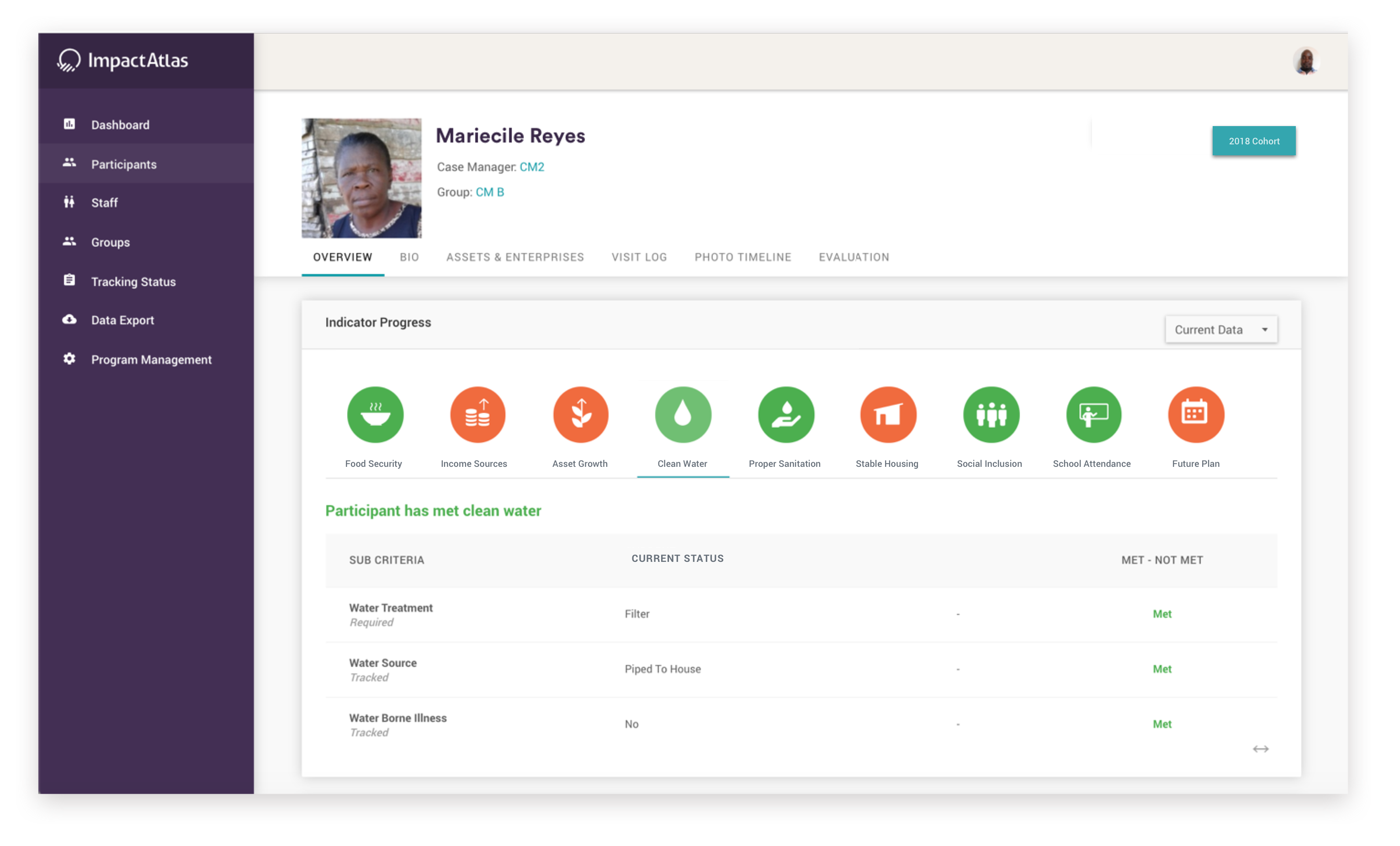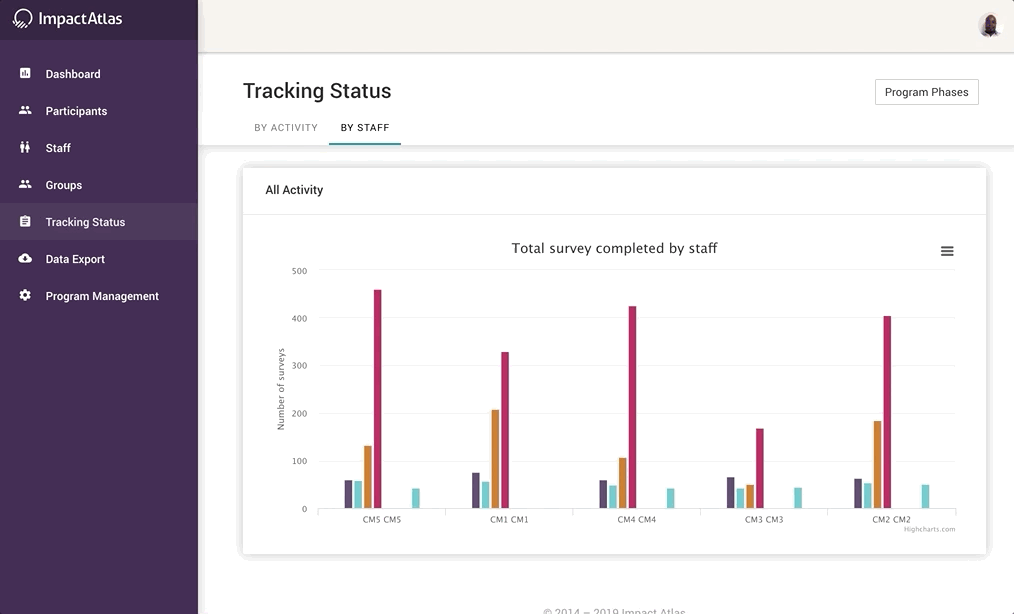How ‘one of the most effective organizations in Haiti’ is breaking the cycle of poverty — and using real-time data to grow its impact.
Fonkoze is Haiti’s largest microfinance institution, serving poor and ultra-poor women in rural Haiti, with 44 branches located throughout the country.
Parallel to its microfinance programs, Fonkoze runs Chemen Lavi Miyò (CLM) or “The Pathway to a Better Life” for those who are too poor for conventional microfinance, families living amid Haiti’s most extreme poverty. Celebrated by Nicholas Kristof of The New York Times as one of the most effective programs in Haiti, CLM uses a holistic set of services to empower Haiti’s poorest women to lift themselves out of ultra-poverty.
Last year, Fonkoze set out to enhance their operational decision-making using real-time outcome-driven data. Fonkoze is now using Impact Atlas as its digital assistant to 4 cohorts in 35 communities across Haiti. The app allows program managers to track participant progress, and personalize assistance in order to provide the greatest support possible.

The structure of the Fonkoze CLM program
Using the graduation model first developed by BRAC, CLM employs specially trained case managers to work with members throughout an intensive 18-month process. The participants learn to build sustainable livelihoods and gain the confidence and skills necessary to grow their potential and create a better life for themselves and their families.
CLM begins by training new members in how to manage small businesses such as small trading or livestock-raising. Each member receives the productive assets — such as the livestock or commerce inventory — needed to start two income-generating activities. All CLM members also receive the materials to construct a 9×9 meter home with a sturdy roof, a stable floor, and a latrine; and a water filter.
CLM provides a small cash stipend to support members while the women’s fledgling businesses grow, and free healthcare in partnership with Zanmi Lasante, a sister organization to Partners in Health.
I am able to track the progress of all CLM cohorts simultaneously and see the progress of each group of participants in real-time.
— Steven Werlin, Communication and Learning Officer, Fonkoze’s CLM Program
Using data in the field
CLM case managers are truly at the heart of the program. The managers make weekly visits to every member, often hiking for hours to reach women in Haiti’s most remote locations and staying overnight. All case managers are equipped with an Android device loaded with Impact Atlas in the native language, Haitian Creole, to provide them the information needed to support their participants — even while offline.
Participant profiles in Impact Atlas contain detailed information about their families, their assets, locations, and their individual progress across the indicators that Fonkoze has set up to track, including food security, access to clean water and school attendance.

Impact atlas Mobile Platform
This data is available in real-time to the field office in Mirebalais, the country office in Port-Au-Prince, and to Fonkoze’s Washington, DC office, allowing for more transparency, accountability and adaptive learning. Data is also separated by the funder for faster reporting.

It is amazing what a small organization with a culture of learning is capable of. Fonkoze is truly an example for the industry as an innovative and outcome driven organization
— Chantal Buard, CEO of Impact Atlas
Using data to make decisions & support reporting
Currently, managers are using data at an aggregate level to make decisions about where to implement additional infrastructure, which participants need specific support, and when to offer those services.
By tracking these data points, Fonkoze believes it has increased its quality of follow up and support to CLM members. The optimization, Fonkoze says, is indeed visible.
Our supervisors are increasingly using the way Impact Atlas flags families who need special attention to ensure that they get the individualized follow-up they need. Reporting is also becoming easier because Impact Atlas makes collecting and organizing data easy.
—Steven Werlin, Communication and Learning Officer, Fonkoze’s CLM Program

About Fonkoze
Fonkoze was created over 25 years ago to bring financial inclusion and development services to Haiti’s poor — providing them a viable way to lift themselves out of poverty.
The Fonkoze Foundation (Fondasyon Kole Zepòl), a Haitian non-profit institution, focuses on the ultra-poor and provides Fonkoze’s microfinance clients with the resources and skills they need to overcome obstacles as they climb up Fonkoze’s Staircase Out of Poverty.
 ImpactAtlas
ImpactAtlas